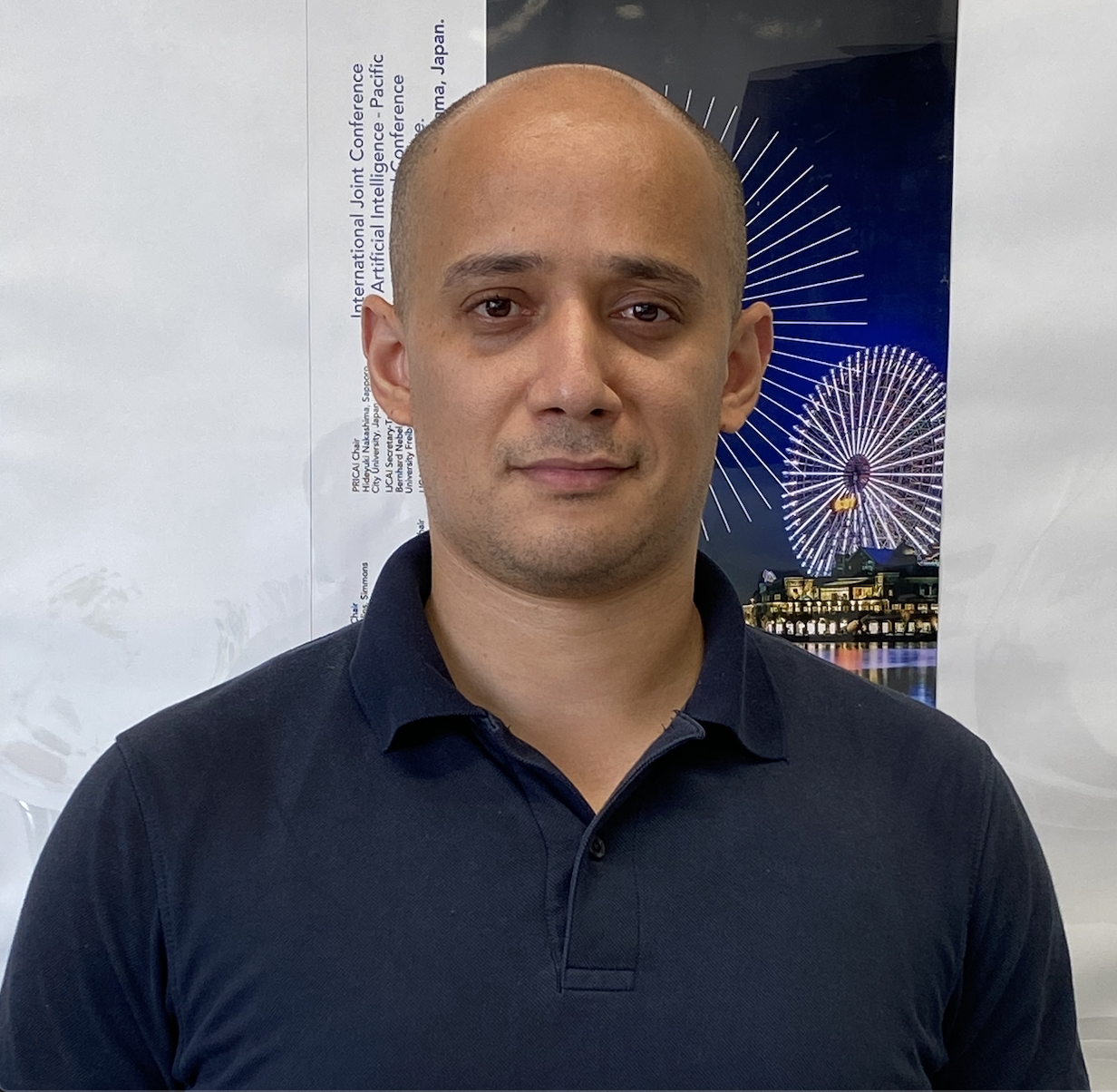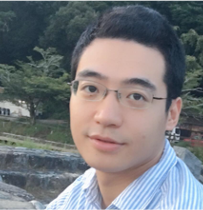
Tutorial #1: Automated Negotiation for Supply Chain Management (ANSCM)

Professor: Yasser Mohammad
- Overview
-
Automated Negotiation between intelligent agents is attracting more attention from the
research community, especially with the broader market penetration of intelligent agents
and the need to coordinate their behavior.
Supply Chain Management is one of the core industrial technologies. Currently, SCM systems set targets that are then negotiated manually to reach agreements between suppliers and consumers and adjust these agreements based on market and operational conditions. Market studies suggest that in some industries, up to 15% of value is lost due to the inability to reach win-win optimal contracting conditions. The recent disruption of supply chains highlights the need to achieve dynamic supply chains capable of responding optimally to changes in market conditions. Automated Negotiation is a promising direction toward this goal.
The International Automated Negotiating Agents Competition (ANAC) has provided stimulation for AN research since its introduction in 2010. Since 2019, a new league was added to ANAC focusing on applying automated Negotiation in a realistic business-like Supply Chain Management scenario (SCML). The main goal of the SCM league is to bring automated negotiation research more toward the real world by putting Negotiation into a larger context from which endogenous utility functions are created instead of being predefined. This game provides ample opportunities for novel ideas in concurrent Negotiation, utility function design, and applying machine learning techniques to automated Negotiation.
This tutorial introduces the audience to automated Negotiation, its application to supply chain management, and the SCML competition. It walks them through developing an agent for the competition, highlighting the research challenges.
- Outcomes
- The main outcomes of this tutorial are the following: (1) A basic understanding of automated Negotiation as a problem, its history, and some of the main challenges facing the field and calling for new research. (2) The basic challenges facing modern supply chain management systems and the need for reactivity enhance the need for automated Negotiation in this field. (3) The tools required to start one's research in automated Negotiation, including the basics of the NegMAS platform. (4) Understanding how to model automated Negotiation in supply chains as a reinforcement learning problem. (5) The tools needed to contribute to the SCML ANAC competition in 2024.
- Prerequisites
-
The tutorial will introduce all the concepts and tools needed. Earlier knowledge of
automated Negotiation or supply chain management is not necessary but may provide an
advantage.
Link to the tutorial webpage
- Biography
- Professor Yasser Mohammad is a Principal Researcher at NEC CORPORATION, A visiting researcher at the National Institute of Advanced Industrial Science and Technology, Japan (AIST), and a Professor at Assiut University, Egypt. He received his PhD from Kyoto University in 2009. His past research spanned the areas of robotics, human-robot interaction, activity recognition, time-series analysis, causality analysis, and emotion recognition. His current research focuses on automated Negotiation and applications of Artificial Intelligence in multi-agent systems. Yasser is the author of two books and over a hundred articles in refereed international journals and conferences, including IJCAI, AAMAS, IROS, UAI, etc. He is a senior IEEE member, the maintainer of NegMAS, an automated negotiation platform, and the main organizer of the Supply Chain Management League of the Automated Negotiating Agents Competition, running in conjunction with IJCAI/AAMAS since 2019.

Tutorial #2: An Introduction to Blockchain as a Database, WEB3.0, and Agents (BCaDBW3A)

Professor: Abdullah Uz Tansel
- Overview
-
Throughout time, the exchange of trusted information among people has played an
essential role in every aspect of their lives: socially, economically, and politically.
Also, networks in the past 70 years have transformed our lives unimaginably by making
digital information ubiquitous. This trend surely will continue at an accelerating pace
in the years ahead.
Blockchain is a foundational innovation for keeping temper-proof (trusted) data in a permanent, immutable, decentralized, global, and trustless ledger. It is a new field combining distributed computing, databases, networks, cryptography, and economics and is rapidly evolving. It allows people, organizations, and machines to digitize their current relationships and form new, secure digital ones since data is disclosed, secured, and recorded securely in a blockchain database system. Moreover, new advances in WEB3.0 are taking place where individuals, organizations, and machines are empowered in a superior digital identity system and trust in innovating new services and products in many domains. Moreover, countless IoT devices with fast and secure communication requirements sense their environments and securely share their data for the above services and products. The tutorial covers blockchains as a database with its fundamentals, evolution to WEB3.0, and contribution to agents. Naturally, Agents need databases for their data and knowledge source, interaction, coordination, and collaboration. The tutorial tentatively covers:- Cryptographic fundamentals,
- Blockchains as a database,
- Bitcoin blockchain,
- Temper proof data and trust,
- Consensus protocols, PoW, PoS, etc.,
- Smart contracts,
- Decentralized Organizations (DAO),
- Cryptocurrencies and money,
- Permissioned and permissionless blockchains as a database,
- WEB3.0 history,
- WEB3.0 governance structures,
- Blockchain oracles and bridges
- Digital identity,
- WEB3.0 applications: DeFi, Decentralized identity, Metaverse, IoT devices, etc.
- Definition and Properties of Agents,
- Types of Agents and their architecture,
- A Taxonomy of Agents,
- Agents and smart contracts,
- Trust, Agents, AI and WEB3.0,
- Limitations and future of WEB3.0 and Agents.
- Outcomes
-
The tutorial topic is timely and relevant for researchers and practitioners in many
application domains, especially researchers and designers of agents who benefit from the
trust and data sharing provided by blockchain databases. The tutorial attendees are
expected to develop, for research or teaching, an understanding and appreciation of:
- The blockchain as a foundational innovation and its fundamentals,
- Security and trustfulness of the data for the efficient and effective functioning of the digital world,
- Keeping temper-proof (trusted) data in a permanent, immutable, decentralized, global, and trustless ledger,
- Decentralized Autonomous Organizations (DAO) and their functions,
- Transition from WEB2.0 to WEB3.0,
- Web3.0 and its architecture for various application domains,
- DAOs, Governance, digital identity, Blockchain oracles and bridges, and incentivization in WEB3.0
- WEB3.0 applications: DeFi, Decentralized identity, Metaverse, IoT devices, Agents, etc.,
- Articulation of Agents and a taxonomy for Agents,
- Trust, Agents, WEB3.0, and AI.
- Prerequisites
- No prerequisites
- Biography
- Professor Abdullah Uz Tansel received his BS in management and his MS and PhD in computer science from the Middle East Technical University in Ankara, Turkey. He has also received his MBA degree at the University of Southern California. After being a faculty member at the Middle East Technical University, Dr. Tansel joined Baruch College, the City University of New York (CUNY), where he is currently a professor of information systems and a professor of Computer Science at The Graduate Center of CUNY. Professor Tansel’s research focuses on temporal databases, and he has made significant contributions in this field. He also headed the editorial board that published the first book on temporal databases, ‘Temporal Databases: Theory, Design, and Implementation’ (1993). Dr. Tansel has a patent on adding temporality to RDF. His research interests are Database Management Systems, Temporal Databases, Semantic Web, Blockchain Databases, and WEB3.0. Dr. Tansel has published many articles in the conferences and journals of the ACM, IEEE, and other professional associations. He frequently speaks on databases and blockchain as a database and WEB3.0. Dr. Tansel is also an ACM and an IEEE Computer Society member.

Tutorial #3: Conversational AI with Large Language Models (CALM)

Professor: Rafik HADFI

Professor: Shiyao Ding

Professor:Takayuki Ito
- Overview
- Discussion support platforms are an effective way to moderate debates and improve the quality of online discussions. Such platforms can be equipped with automated mediation mechanisms that rely on conversational agents that intelligently process and generate utterances. These agents can guide crowds into solving wicked problems that traditional decision-making approaches cannot handle. With the recent breakthroughs in Large Language Models (LLMs), it is now possible to build human-like conversational systems with incredible capabilities. In recent years, the development of the transformer model unveiled in 2017 has marked a significant milestone in the field of Natural Language Processing (NLP). Pretrained LLMs predicated on this transformer model can be broadly divided into three categories: autoregressive models, masked language models, and encoder-decoder models. Autoregressive models, such as GPT, predict subsequent tokens based on the preceding sequence. In contrast, masked models like BERT employ a strategy where a portion of the input text is obscured, and the model is trained to predict the masked tokens based on the context. Encoder-decoder models, suitable for tasks such as translation, encode the entire input sequence and decode it to produce the output. Scaling and deploying such systems into society is a conceptual, technical, and ethical decision that must be carefully addressed. In line with this vision, we propose a tutorial that offers a comprehensive and practical way to implement the next generation of conversational AI using the most recent advancements in NLP and LLMs.
- Outcomes
- The tutorial attendees will learn how to build LLMs, train LLMs, integrate LLMs into conversational agents, and deploy them into online social networks. The tutorial would greatly interest the IEEE ICA audiences as it covers overlapping and diversified areas of AI such as agent-based modeling and development, NLP, NLG, NLPs, and computational social sciences.
- Prerequisites
- The participants should have some basic knowledge of Python programming, Machine Learning, Natural Language Processing, and Agent-based development.
- Biography
-
Rafik Hadfi is an Associate Professor in the Department of Social Informatics at Kyoto
University in Japan. He received his Ph.D. from Nagoya Institute of Technology in 2015
and worked in Japan and Australia before joining Kyoto University in 2020. His research
interests lie in the design, development, and application of multiagent systems for
social simulation and collective decision-making. Rafik served as a Program Committee
member of leading AI conferences such as IJCAI, AAMAS, SNPD, IEEE ICA, and reviewer for
Group Decision and Negotiation; Artificial Intelligence Review; Neural Computation;
Advanced Computational Intelligence and Intelligent Informatics; and Networked and
Distributed Computing. Rafik has been the publication chair, workshops chair, tutorials
chair, volunteer chair, and web chair for international AI conferences such as IJCAI,
PRICAI, PRIMA, and IEEE ICA. Rafik received the Gregory Kersten GDN Journal Best Paper
Award (2023), the Supply Chain Management League Competition Award at the 13th
International Joint Conference on Artificial Intelligence (2021), the annual conference
award from Japan's Society for Artificial Intelligence (2020), the IBM Award of
Scientific Excellence (2020), the Best Paper Award from the Information Processing
Society of Japan (2016), the IEEE Young researcher Award (2014), and the AAAI Student
Scholarship Award (2014).
Shiyao Ding is a multiagent systems researcher with experience in academia and industry. Currently, he is an assistant professor at Kyoto University. His research is about multiagent systems, consensus informatics, reinforcement learning, and its industry applications like edge cloud computing. He was awarded the Best Student Paper Award for his graph convolutional reinforcement learning research at IEEE-ICA 2021. He holds a Ph.D. degree in Informatics from Kyoto University in September 2022.
Takayuki Ito is a Professor at Kyoto University. He received the B.E., M.E, and Doctor of Engineering from the Nagoya Institute of Technology in 1995, 1997, and 2000, respectively. From 1999 to 2001, he was the Japan Society for the Promotion of Science (JSPS) research fellow. From 2000 to 2001, he was a visiting researcher at USC/ISI (University of Southern California/Information Sciences Institute). From April 2001 to March 2003, he was an associate professor at the Japan Advanced Institute of Science and Technology (JAIST). From April 2004 to March 2013, he was an associate professor at the Nagoya Institute of Technology. From April 2014 to September 2020, he was a professor at Nagoya Institute of Technology. In October 2020, he became a professor at Kyoto University. From 2005 to 2006, he was a visiting researcher at the Division of Engineering and Applied Science, Harvard University, and a visiting researcher at the Center for Coordination Science, MIT Sloan School of Management. From 2008 to 2010, he was a visiting researcher at the Center for Collective Intelligence, MIT Sloan School of Management again. From 2017 to 2018, he was an invited researcher of the Artificial Intelligence Center of AIST, JAPAN. Since March 5, 2019, he has been AgreeBit, Inc.'s CTO. He is a board member of IFAAMAS, an Executive Committee Member of the IEEE Computer Society Technical Committee on Intelligent Informatics, the PC-chair of AAMAS2013, PRIMA2009, the Local Arrangements Chair of IJCAI-PRICAI2020, General Chair of PRIMA2014, and was an SPC/PC member in many top-level conferences (IJCAI, AAMAS, ECAI, AAAI, etc). He received the JSAI (Japan Society for Artificial Intelligence) Contribution Award, the JSAI Achievement Award, the JSPS Prize, 2014, the Prize for Science and Technology (Research Category), The Commendation for Science and Technology by the Minister of Education, Culture, Sports, Science, and Technology, 2013, the Young Scientists' Prize, The Commendation for Science and Technology by the Minister of Education, Culture, Sports, Science, and Technology, 2007, the Nagao Special Research Award of the Information Processing Society of Japan, 2007, the Best Paper Award of AAMAS2006, the 2005 Best Paper Award from Japan Society for Software Science and Technology, the Best Paper Award in the 66th annual conference of 66th Information Processing Society of Japan, and the Super Creator Award of 2004 IPA Exploratory Software Creation Projects. He is the Principal Investigator of the Japan Cabinet Funding Program for Next Generation World-Leading Researchers (NEXT Program).
